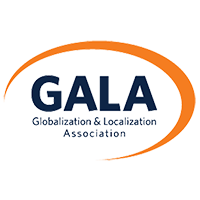There’s More to Learning a New Language
Whether you are an avid traveler, career hungry, or forgetful, learning a new language could be the missing puzzle piece you have been looking for!
A medical study published in the Annals of Neurology is the latest in a series of scientific research to point out that learning a new language is a good exercise, especially for the brain.
“These findings are of considerable practical relevance,” said Dr. Thomas Bak from the Centre for Cognitive Ageing and Cognitive Epidemiology at the University of Edinburgh. “Millions of people around the world acquire their second language later in life: in school, college, work, travel or even marriage into another linguistic community. Our study shows that bilingualism, even when acquired in adulthood, may benefit the aging brain.”
Here are 3 benefits of learning a new language:
1. Improves your memory
The more you use your brain, the better it works. Learning a new language is a form of exercise for the brain. It helps keep it active and in turn improves your ability to store information in the long and short term memory. In addition, speaking more than one languages strengthens the skills that increase the brain’s cognitive reserve, delaying memory loss at an older age.
2. Better at multitasking
Not everyone is capable of multitasking, but studies have shown that by learning a new language you become proficient at it. Switching from one language to another is a very strenuous action for the brain. Especially when thinking in one language and simultaneously speaking in another. It is this action which teaches our brain to handle doing multiple things at the same time.
3. Delays the onset of Alzheimer’s and dementia
Several studies have shown that people who learn another language are more likely to delay the onset of Alzheimer’s and dementia. The process of speaking two or more languages prepares the brain to better cope with early symptoms of the disease. A study led by Dr. Bialystok supported the findings that multilingualism prepares the brain to better handle memory deficits. Why not try crosswords in another language?
Recently, Swedish scientists conducted a study to see what happens to the brain while learning a new language. With MRI and electrophysiology the study concluded that the brain grew while listening, understanding and speaking another language. In addition, the study showed that one’s ability to acquire a language was determined by which part of the brain grew during such an exercise.
And even though learning a second language is easier at a younger age, studies suggest that it is never too late and you don’t have to be a fluent speaker to get the benefits!




